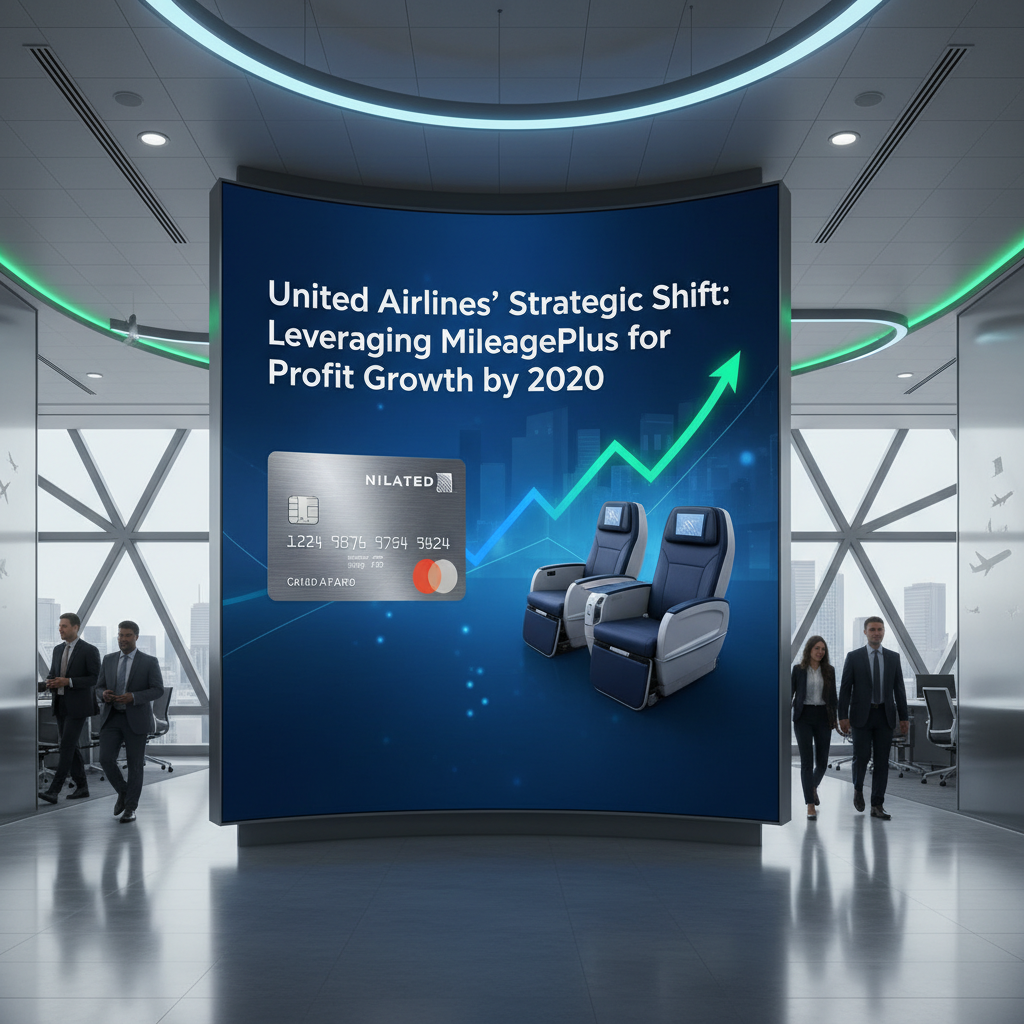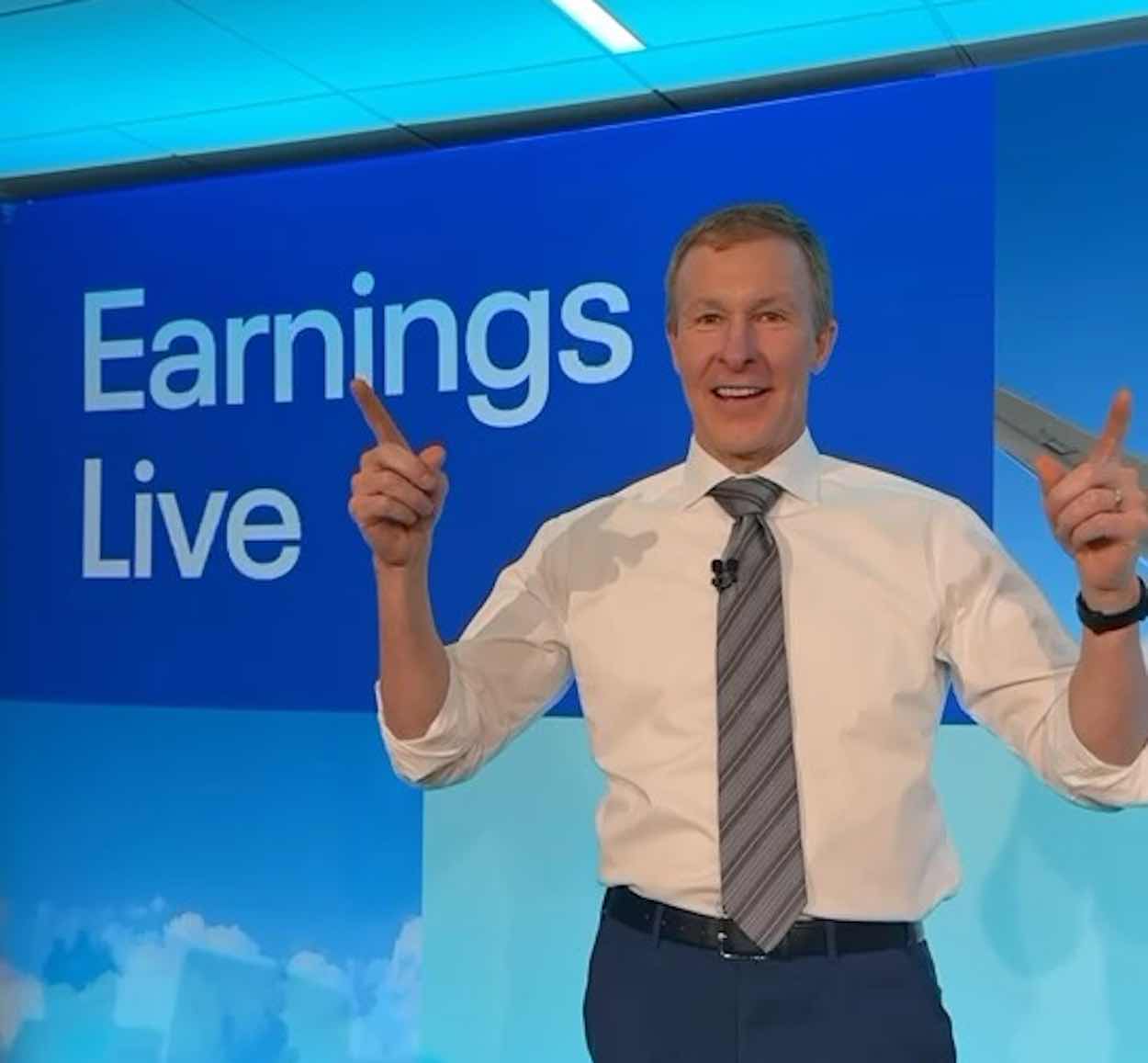
United Airlines Leverages MileagePlus Loyalty for Profit Growth by 2030
United Airlines is transforming its revenue model by leveraging its MileagePlus loyalty program to significantly increase profitability by 2030. Shifting focus from commodity pricing to premium customer experiences and diverse revenue streams, the airline aims to double loyalty program profits through enhanced credit card partnerships and revamped Premier benefits. Despite challenges like a competitive credit card market and the need to sustain customer engagement, United’s strategy targets improved EBITDA and investor confidence. Investments in digital technology and sustainable aviation fuel further support customer retention and environmental goals. This comprehensive approach positions United for growth while redefining its role in the aviation industry.
Summary
United Airlines' Strategic Shift: Leveraging MileagePlus for Profit Growth by 2030
United Airlines is embarking on a transformative journey to redefine its revenue model by leveraging its MileagePlus loyalty program. The airline aims to significantly boost its profitability by 2030, moving away from traditional commodity pricing to a focus on premium customer experiences and diverse revenue streams. This strategic shift not only emphasizes growth through loyalty but also involves enhancing customer engagement and environmental commitments.
Focus on MileagePlus Loyalty Program
United Airlines is betting heavily on its MileagePlus loyalty program to drive revenue growth. The program is expected to double its profits by 2030, underscoring its pivotal role in the airline's financial strategy. A key strategy here is the enhancement of credit card partnerships, which has led to increased cardholder spending and retention. This symbiotic relationship between the loyalty program and credit card offerings is designed to foster long-term customer loyalty.
Premium Customer Experiences
To distinguish itself in the competitive airline market, United is enhancing its premium offerings. The MileagePlus Premier program has been revamped to provide more flexible and valuable ways for customers to earn and utilize Premier status benefits. This includes innovative redemption options for PlusPoints, such as premium seat upgrades, which cater to the desires of premium travelers. United's strategy to move beyond mere schedule and price competition by offering unique products aims to attract different revenue streams, ensuring market differentiation through product diversification.
Risks and Uncertainties
Despite the ambitious plans, United faces several challenges. The competitive credit card market poses a risk, potentially affecting United's market share and customer loyalty. Additionally, the value of the MileagePlus loyalty program must be continuously maintained to prevent a decline in customer engagement and retention. Achieving the projected growth rates is also a formidable task, requiring precise execution of its market strategy.
Wall Street and EBITDA Growth
United's strategy is tailored to appeal to investors by moving away from the low-margin operations typical of commodity airlines. By focusing on a loyal customer base and premium offerings, United aims to enhance its EBITDA (Earnings Before Interest, Taxes, Depreciation, and Amortization), a critical metric for investor relations. This shift towards premium customer experience and loyalty is expected to reflect positively on United's financial health and investor confidence.
In addition to these core strategies, United is also investing in digital technology upgrades to improve customer interactions and operational efficiency, while committing to sustainable aviation fuel as part of its environmental responsibility. These elements are integral to customer retention and align with broader industry trends towards sustainability and digital transformation.
Conclusion
United Airlines is strategically positioning itself for future growth by enhancing its MileagePlus loyalty program and focusing on premium customer experiences. While navigating the complexities of competitive markets and consumer expectations, the airline's commitment to innovation in loyalty, partnerships, and sustainability sets a promising path towards achieving its ambitious profit goals by 2030. This multifaceted approach not only aims to secure financial growth but also to redefine United's place in the aviation industry through customer-centric and environmentally conscious practices.

Frequently Asked Questions
Q: United Airlines MileagePlus profit growth
A: United Airlines MileagePlus, the airline's loyalty program, has been a significant driver of the company's profit growth. By offering members incentives such as miles for flights and partner purchases, MileagePlus encourages customer loyalty and repeat business, which positively impacts revenue. Additionally, partnerships with credit card companies and other businesses generate substantial non-ticket revenue, contributing to the overall profitability of United Airlines. The program's strategic enhancements continue to bolster MileagePlus as a key profit center for the airline.
Q: how will MileagePlus double profits by 2030
A: MileagePlus aims to double its profits by 2030 through a combination of expanding its airline partnerships, enhancing loyalty program offerings, and leveraging data analytics to provide personalized experiences and targeted promotions. By increasing member engagement and monetizing travel-related services, MileagePlus plans to generate more revenue from both existing and new customers. Additionally, the program may integrate advanced technology and sustainability initiatives to attract a broader demographic and boost profitability.
Q: United Airlines loyalty program changes
A: United Airlines periodically updates its MileagePlus loyalty program to enhance member benefits and adjust earning structures. Recent changes may include modifications to elite status qualification requirements, adjustments in award miles earning rates, or new redemption options for flights and upgrades. To stay informed, it's best to review official United Airlines announcements or the MileagePlus program website for the latest details on any changes.
Q: impact of credit card deals on airline revenue
A: Credit card deals, such as co-branded airline credit cards and promotional offers, significantly impact airline revenue by fostering customer loyalty and encouraging frequent travel. These deals often include points or miles that can be redeemed for flights, boosting ticket sales and ancillary revenue. Additionally, airlines typically earn substantial fees and revenue sharing from credit card issuers, creating a dual revenue stream beyond just selling seats. Consequently, credit card partnerships have become a vital component of many airlines' overall financial strategy.
Q: United Airlines CEO Scott Kirby statements
A: Scott Kirby, the CEO of United Airlines, frequently addresses topics such as airline safety, customer experience, and industry challenges. He has emphasized the importance of operational reliability and investing in new technologies to improve travel efficiency. Kirby also discusses the airline's sustainability goals, including commitments to reduce carbon emissions and promote environmental responsibility.
Key Entities
United Airlines: United Airlines is a major American airline headquartered in Chicago, known for its extensive domestic and international flight network. The airline is actively promoting its MileagePlus loyalty program to enhance customer retention and engagement.
MileagePlus: MileagePlus is United Airlines' frequent flyer program, offering members rewards such as flight miles, upgrades, and exclusive benefits. It is one of the largest airline loyalty programs in the United States, designed to incentivize repeat travel with United.
Scott Kirby: Scott Kirby is the CEO of United Airlines, having taken on the role in 2020. He has been instrumental in steering the airline through operational challenges and advancing its loyalty initiatives.
Chase: Chase is a leading American financial services company that partners with United Airlines to offer co-branded credit cards linked to the MileagePlus program. These cards allow members to earn miles and access exclusive travel benefits.
Delta: Delta Air Lines is a major U.S. carrier and a competitor to United Airlines, recognized for its global network and customer service innovations. Delta operates its own loyalty program, SkyMiles, which competes directly with United's MileagePlus.
External articles
- United Reveals To Wall Street MileagePlus Will Double Its ...
- United Airlines Continues to Win Brand-Loyal Customers ...
- United Airlines Continues to Win Brand-Loyal Customers ...
Related Articles
- Luxury Hotel Openings to Watch in 2025: Exclusive Resorts and Historic Charm
- Kristen Bell Stars in Citi Strata Elite Card Ad Campaign Highlighting Exceptional Travel Rewards
- Integrating Nature, Technology, and Wellness in Modern Office Design
YouTube Video
Title: United Air CEO on Travel Demand, Pricing and Newark
Channel: Bloomberg Television
URL: https://www.youtube.com/watch?v=jl3YOn2VhPA
Published: 4 weeks ago
Travel